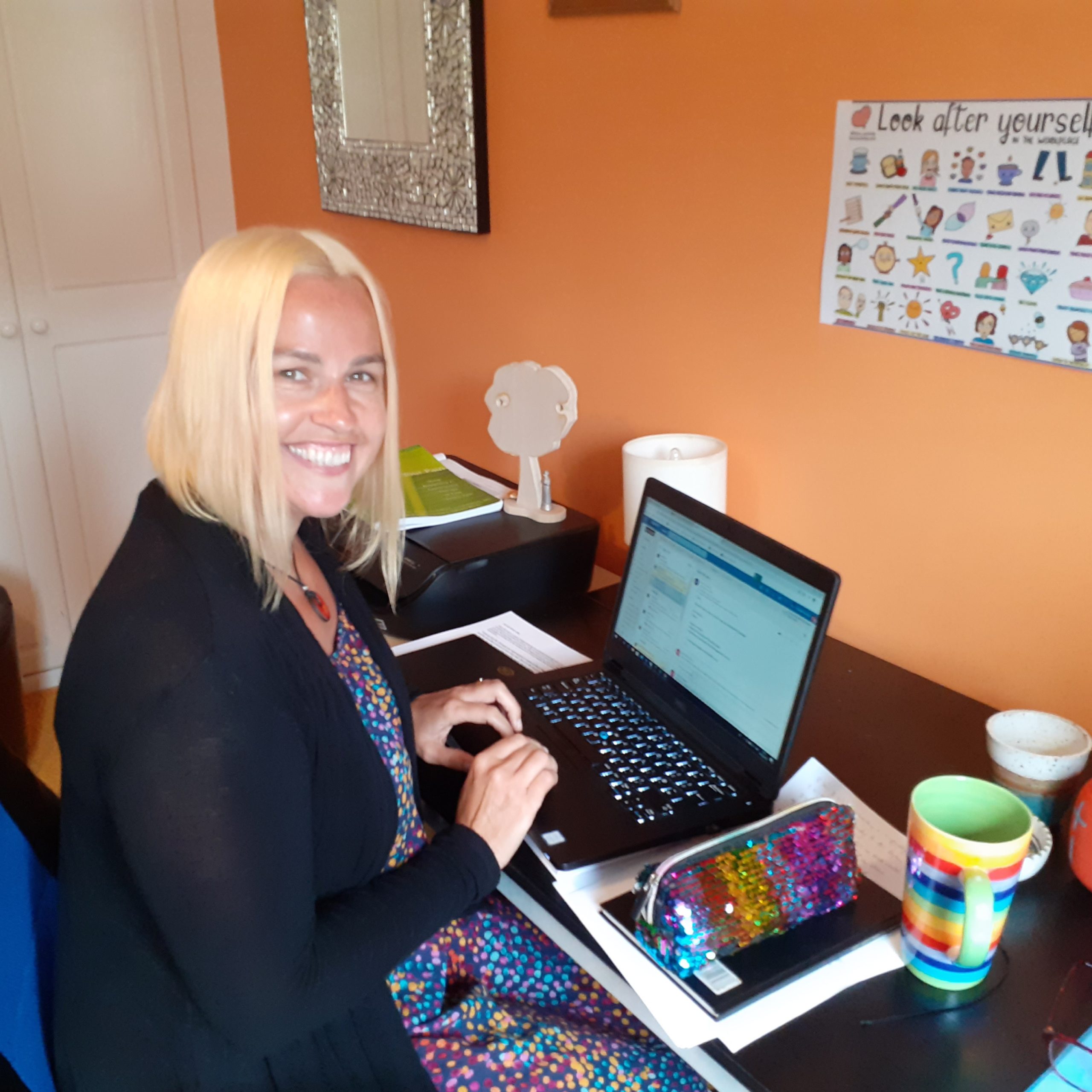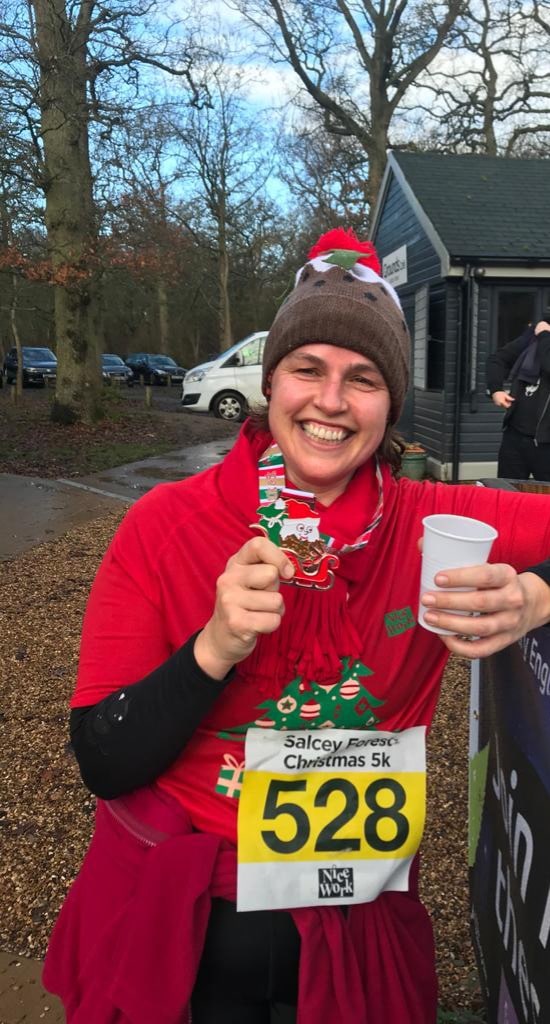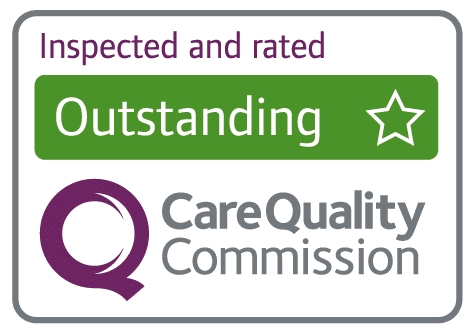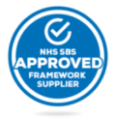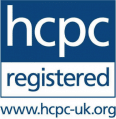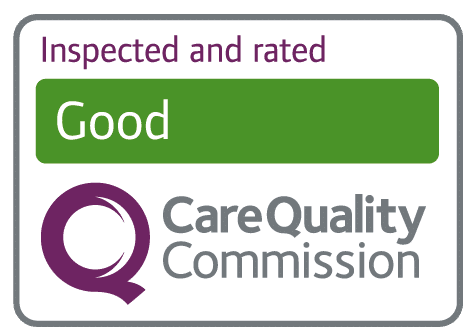This is the next in a series of blogs featuring the all-female leadership team in our revolutionary Lincolnshire Pain service. Today we feature Dr Lizzie Doherr, Clinical Lead for Pain Psychology, Lincolnshire Pain Management Service, who describes the advantages of moving out of her comfort zone to Connect Health after 20 years in one organisation.
I was interested in people, relationships and how the world worked from a very young age
I’m the youngest of four children and was constantly asking questions about the world and how it worked and was fascinated by human interaction. Originally, I was going to train to be a medic, but the more I thought about it, the more I thought that psychology would be a better fit, and so that’s what I studied at university. I absolutely loved learning about how we are as human beings and what makes us tick, so I then went on to do a Master’s in forensic psychology. I then worked in a prison for a period of time, before committing to clinical psychology and taking a three-year doctorate at the University of East Anglia.
I really enjoy working in teams of people who are trying to find ways of helping other people through distress
It fits in with my personality, my interest in people, and my passion for helping others to live well in amongst all the difficulties they experience. After my Doctorate, I worked in Cambridgeshire; half the time in older people’s mental health and the other half in a neurological rehabilitation team, predominantly with traumatic brain injury in a multi-disciplinary setting. This involved supporting people with brain injuries in their homes, helping them to accept and adjust to massive changes in their identity. After five years I moved to the neuro rehab team, where I worked for 14 years. I became the team lead and the role extended to cover Multiple Sclerosis, Motor Neurone Disease and Stroke.
It was a difficult decision to leave my previous role as I was working with exceptional clinicians, but it had become hard to action any ideas to move the service forward
It felt like the right time to move. A lot of my work had moved away from patient work, into day to day management tasks, e.g. checking fire extinguishers. I love learning and wanted to move into something different. It was time to move on and find a new challenge.
I saw the job at Connect Health and it looked aligned to my preferred therapeutic model of acceptance and commitment therapy
The ‘Pain Revolution’ made complete sense to me: rather than trying to fix someone’s pain you are looking at how they accept and live a valuable life alongside their pain. This compassion focused therapy sounded like it could work brilliantly with patients. The strapline I really like is ‘How can I have my pain without my pain having me?’. I read more about Connect Health, and it sounded like a dynamic and innovative place to work so I went for an interview.
Leaving the NHS felt massive, so it was a huge step
One of my biggest concerns was the fantastic team I was leaving, but the team here is really exceptional. They have such great skills and I’ve never felt so well supported whether clinically, by my leadership team managers or my supervisor. It feels like everyone’s got each other’s back and they genuinely care about each other. I’m a huge advocate of compassionate workplaces, so the culture at Connect Health is perfect for me.
Connect Health has a compassionate environment. There are demands of the service which need to be met, but at its heart we have a team that respect and care about each other. There’s something quite special about what we have.
Our team is bigger than the sum of its parts
It’s not often in life you have a team of people you get on with so well, and the one at Connect Health is amazing. We all have varying skills, attributes and personalities, but work really well together and want the best for each other and our patients. We have a really good working relationship that means we can challenge each other but still care. It doesn’t feel like a hierarchy, we’re just all working together for the greater good. The downside is that even when we’re off duty it’s hard to not still support each other, and put a boundary between work and home life.
The nature of the client group means the work can be demanding
It can be hard to stop working because I enjoy what I do so much and I’m so interested in it. There’s so much going on and so many new ideas that it’s difficult to just leave work and forget about it. It’s very dynamic and fast paced, but on the other hand you need look after yourself and make sure when you’re off, you’re off.
I feel like I’m always learning 
I’ve learnt so much from my colleagues, and the clinical work is challenging too. It’s such an interesting place to work, and there’s so much good discussion and interaction. It feels great to be delivering meaningful and helpful input to patients. I’ve also had to get to grips with IT in a way I never thought I would, particularly as a result of the COVID-19 pandemic. I can’t wait until I can get back into a clinic and give face to face support with pain management. It’s made me realise how much a therapist needs that human connection. We’ve done as much as we can over the phone, and our patients have really appreciated this, but it’s been very difficult for patients living on their own.
There’s no fear in trying something new, it’s about trying things to continuously improve
If you come up with an idea, it’s welcomed. It means people aren’t scared to try things; there’s a friendly response to it. Even if I’ve made a mistake there’s no blame culture. It’s acknowledged that change is vital to delivering better services.
I love to see the changes we help people to make to their lives, and the benefits in terms of how they feel. But it’s the teamwork, the feeling that I’m appreciated and that the work I do is valued
There’s a great sense of joy and fun
When you’re dealing with challenging situations, you need to balance it to maintain your ability to connect with patients. Alongside all the difficult stuff, there is a sense of teamwork and appropriate humour which is a huge part of what I like about this organisation. We are serious when we need to be, but you’re allowed to have fun at the right time and I think that changes the work environment massively.
Working at Connect Health has massively improved my physical wellbeing 
I thought, if I’m going to be advising other people to move more, I really ought to do it myself. Being around a team of people who are passionate about exercise inspired me to get active. I’ve started running, doing 5k runs and I’m training for a triathlon for when that’s possible again.
Every day I’m glad that I stepped out of my comfort zone
I’m just really happy here. I feel there is so much to do in this role. I really enjoy that my job is half clinical and half management; it’s the perfect situation for me. I feel I can manage my team optimally from a position of truly understanding many of the demands and pressures they face because I’m doing the clinical work as well. Even when I have difficult and stressful moments, I still love the job.
The Lincolnshire MDT
The leadership team in Lincolnshire is unique in Connect Health in having the largest number of equal clinical leads across physiotherapy, psychology, nursing, pain management and service management. This creates a powerful team of collaborative partners with a singular focus and a depth of care.
My role includes:
- Patient facing work – cofacilitating the pain management programme 8 week group sessions alongside physio colleagues
- One to one clinic appointments for pain psychology for those who don’t want to or can’t do groups
- Psychology Team – a team of five supporting the wider team, e.g. if a patient has mental health needs, or debriefing after a patient has expressed desire to harm themselves or others
- Advocating for a compassionate workforce
- Day to day working – working across the county on meetings, MDT reviews and patient case reviews
If you’d like to find out more about working at Connect Health, contact people@connecthealth.co.uk

